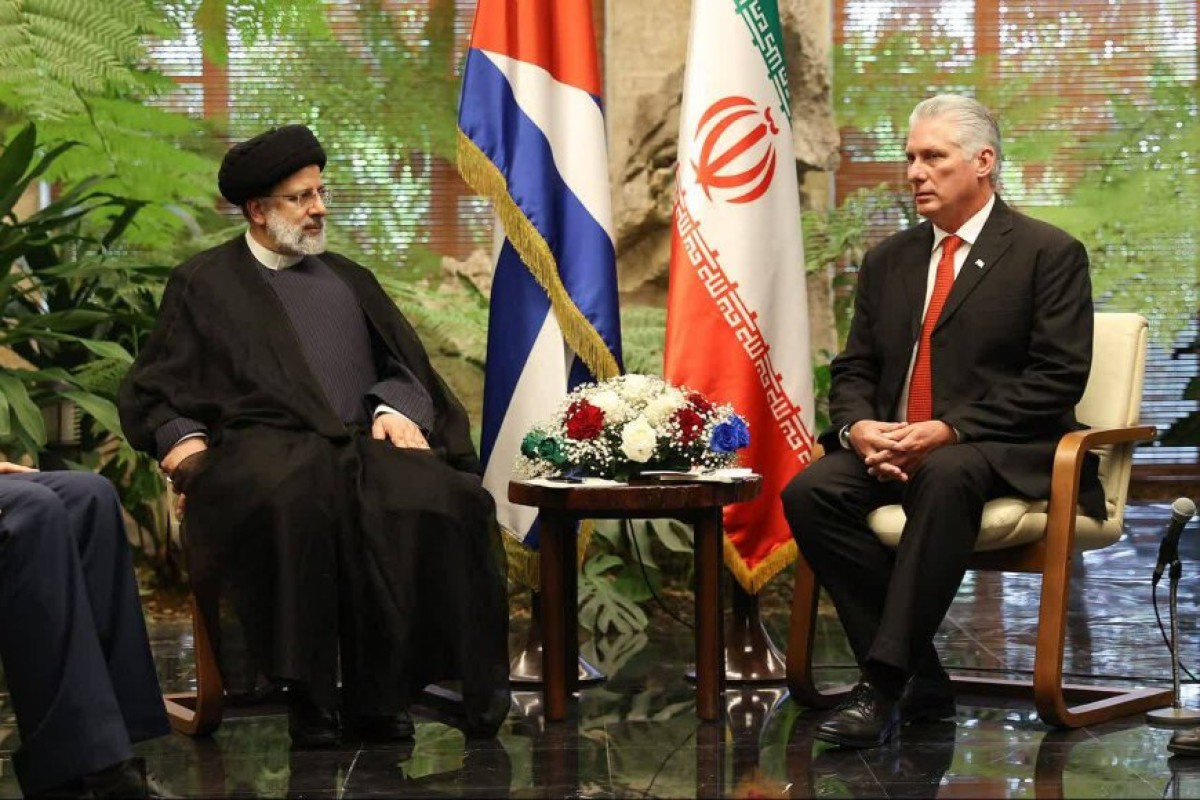 225
225
Iran and Cuba: Partners in Economic Progress?
Iran has recently hosted the President of Cuba, an occasion that was meticulously coordinated between the two nations at the highest governmental level. Situated on the American continent, Cuba finds itself in close proximity to the United States, a mere 100 kilometers away, making it one of the geographically nearest nations to its powerful neighbor and arch-enemy.
By: A. Yeganeh
Throughout the Cold War, the Soviet Union employed a subtle yet potent strategy by cultivating a relationship with Cuba, implicitly threatening the United States, and engaging in arms exchanges. This calculated maneuver aimed to exert pressure on the United States, with the ultimate goal of instigating a large-scale conflict. However, the resolution of this precarious situation was achieved through careful planning and tension management between the two countries involved. Presently, after enduring years of sanctions, Cuba endeavors to rebuild its nation by addressing internal weaknesses and resolving issues with the United States.
Nevertheless, experience has shown that the removal of sanctions by the United States does not guarantee the resolution of the embattled country's problems, serving as a poignant example that supports the constant argument put forth by the leaders of the Iranian government that the lifting of sanctions is merely wishful thinking. Drawing valuable lessons from its own history, Cuba has embarked on establishing extensive relations with Eastern countries, aligning itself with China's grand One Belt, One Road Initiative (BRI).
Russia, too, has maintained deep-rooted ties with Cuba for an extended period of time. In recent months, Russia has demonstrated its unwavering commitment to strengthening the relationship between the two nations by providing assistance to alleviate Cuba's severe energy and gasoline shortages. Iran, similarly, has served as a traditional partner for Cuba, fostering both economic and non-economic exchanges.
Following the Iranian Revolution, Cuba swiftly recognized the revolutionary aspirations of the Iranian people, forging a strong bond between the two nations. In the years subsequent to the imposed war, bilateral relations between Tehran and Havana remained balanced until the advent of the 13th government, which prioritized its "first friend" strategy, directing its attention towards friendly nations. Tehran and Havana possess the potential for cooperation across various dimensions. In the military realm, with the expiration of Iran's military sanctions as per Security Council Resolution 2231, Tehran has set its sights on global military markets, prioritizing its friendly nations and ensuring a stable supply of their military requirements. Following the conclusion of the Cold War and the termination of Soviet support, the Cuban armed forces have experienced a decline, necessitating technical and logistical support. Iran, with its relatively economical technical and military services, stands as a viable option for Cuba. One constant demand from advanced nations revolves around securing military bases in strategic and sensitive regions worldwide. Iran is no exception to this principle, and the establishment of a military or civilian base in one of Cuba's ports would greatly favor Tehran.
In economic terms, the two nations, with their distinct needs, can fulfill each other's requirements through the exchange of goods without resorting to commonly used global currencies. Iran boasts an abundance of energy resources, while Cuba grapples with energy-related challenges. By exchanging energy for livestock products or coffee, both nations can meet their respective needs. Furthermore, Cuba possesses expertise in the realm of water resources, a precious commodity in a world grappling with drought. Leveraging the technical knowledge of Iranian companies to process this vital resource can generate significant added value for both countries. In conclusion, the strengthening of ties between Iran and Cuba in the coming year may exert increased pressure on the United States.
It is crucial to bear in mind that the United States will hold its presidential elections next year, and based on past experiences, the government strives to adopt peaceful conditions for its foreign and domestic policies. It is even willing to grant various privileges to rival nations, capitalizing on these advantages during the presidential contest.
 225
225
Comment
Post a comment for this article